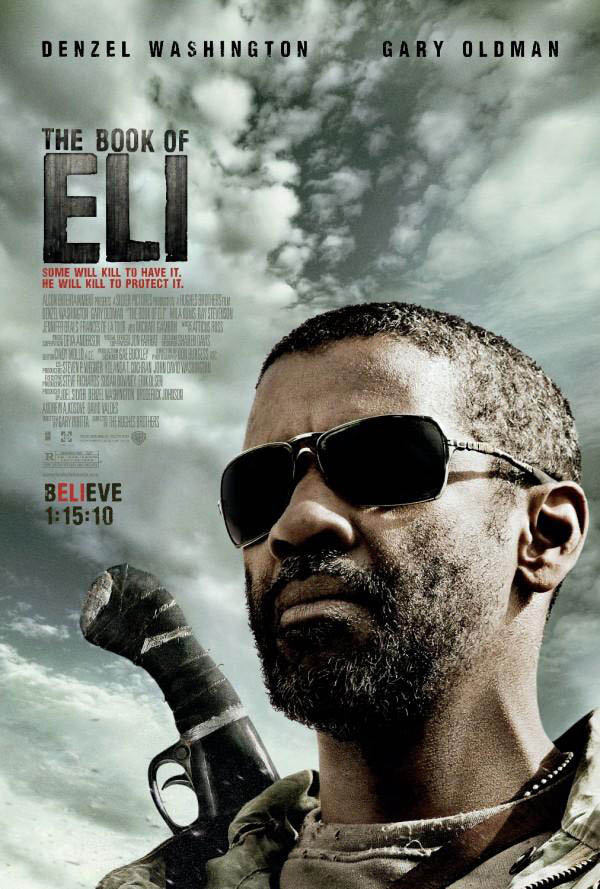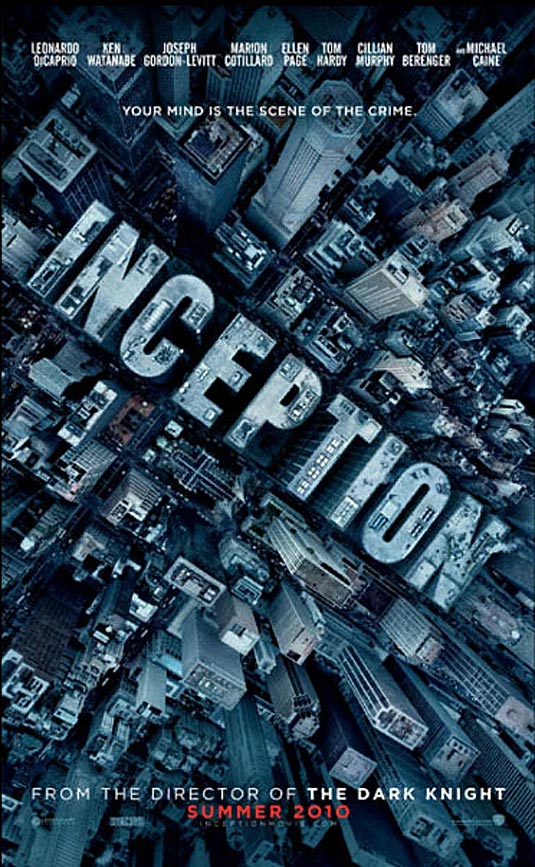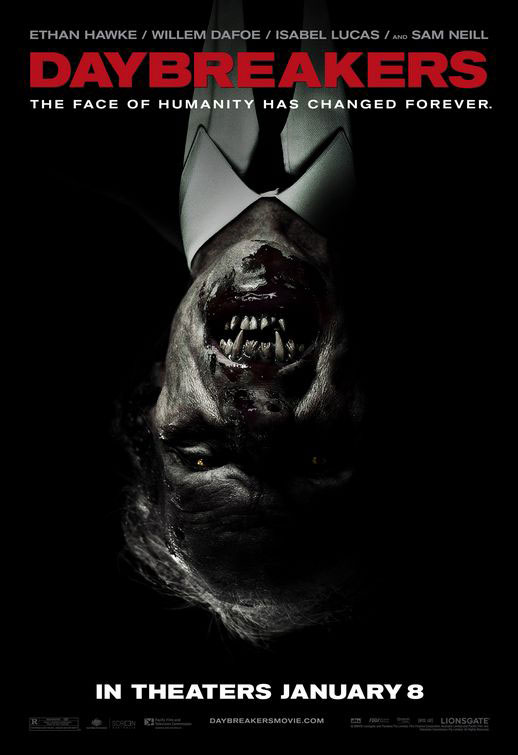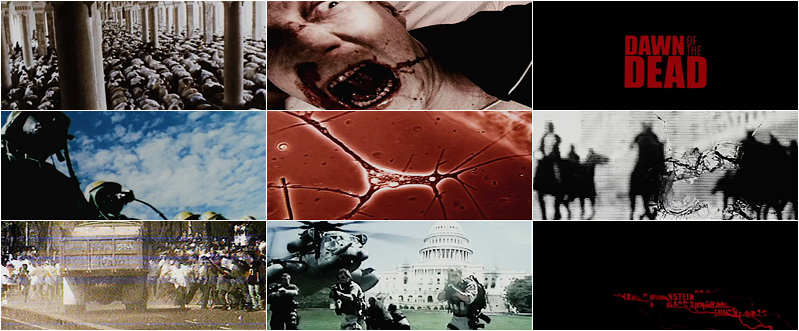As happens more and more often these days, I did not see Terminator: Salvation in theaters. First of all, it didn’t last as long as I thought it would – it wasn’t as big a hit as I’d expected it to be – and second of all there was something in the trailers and advertisements that made it seem flat to me, lifeless. So I waited a year and recently caught it on pay per view, and man, am I glad I did. This movie was one of those odd films that isn’t exactly bad so much as it quite simply made me angry. Spoilers ho, but here are the 4 reasons this movie made me really mad:
ONE: THIS MOVIE SHAT ALL OVER ONE OF THE COOLEST SF MOVIES OF ALL TIME. Now, sure, Terminator 3: Rise of the Ridiculous shat all over it too, but for some reason that didn’t incense me. T3 was simply a bad movie – it was still kind of fun watching Arnie doing his Terminator schtick, and it tried to honor its heritage. Salvation treats the terminator mythos as a collection of props to blow up, a collection of one-liners to spray at the nerds in the audience for gut fist-pumps, and a vehicle for Christian Bale’s increasingly creepy Action Man Persona/Voice. There’s absolutely no attempt to match the previous movies for tone, atmosphere, or even vision of the future. They namecheck the famous lines, the occasional detail (You Could be Mine, e.g.) but the movie is a sterile, underconceived horror.
TWO: THE WHOLE PLOT IS JUST A COLLECTION OF SET PIECES. Seriously, the kind of ridiculous story takes up about four or five minutes of screen time; the rest is just a collection of action sequences stitched together. Every time there’s a quiet moment with people talking, Skynet robots show up in awesome scale to kill and hunt, and the next ten minutes is just running and screaming – the best part being the screamed exposition as characters flee the huge Terminators, spouting definitions and explanations. This is even lampshaded when they introduce a seemingly interesting old woman as a character; She appears to be at least partially leading a group of desperate human survivors who have made an old gas station their HQ, complete with fresh fucking vegetables stored in the basement. Sure, why not. Still, the old woman, and her apparent authority with these desperadoes, is at least interesting. Who is she? How come these well-armed people listen to her at all?
Guess what? You never find out! A damn thing about her! Moments after she’s introduced, she’s scooped up by a Terminator and a mindless action sequence ensues. You see her again, in a weird twist, but nothing is ever explained about her. I mean, shit, if the whole encounter was just an excuse to calm the audience down so they jump when the hella-huge Terminator shows up, why even bother with the interesting details? Just put your standard-issue Mad Max type in charge, and leave it at that.
The whole damn movie is like that. Thirty seconds of plot and then … HOLY CRAP, TERMINATORS! RUN RUN RUN!
THREE: WHAT PLOT THERE IS STANKS. Now, you might think a movie where the entire premise has been explained in detail in prior movies would be a snap to plot out. And you would be right. Somehow, they fucked this one up. The whole plot is basically a scheme by Skynet to lure John Connor to his doom in the most elaborate and insane way possible. Granted, the crux of all the Terminator films has been Skynet’s inability to defeat Connor and ultimately the whole human race, driving it to elaborate schemes. Sending a robot back in time to kill his mother is, in fact, a ridiculously elaborate scheme – but it does have a certain directness once you fudge the whole time-travel thing: Terminator goes back (in time) to murder Connor (remotely, by murdering his mother before she can birth him). This scheme involves time-travel in a much flimsier way, and yet is so indirect and convoluted it’s a wonder a machine with a brain the size of the universe thought it might work.
The one thing I think of that makes it even possible is that Skynet, with infinite resources and clock speeds to plot, simply launches every plan it conceives that has a 1% chance of working or better. This would explain a lot, actually – Skynet is launching hundreds, thousands of convoluted bullshit plots against humanity every second. We’re just watching the tiny percentage that worked for whatever reason.
Anyways, even if you’re willing to swallow the ridiculous premise and twist of the film, once Connor is, in fact, trapped by this plot, what does Skynet do? Send a thousand robots to kill him? Fill the whole complex with poison gas? Nuke its own complex simply to destroy its human nemesis? You’re watching a better movie. It instead allows him to run around free long enough to set all the human prisoners free and hook up with allies. Then, when Skynet says, oh yeah, him, I ought to kill him, it sends exactly one Terminator after him. Without a weapon. Sweet fucking lord.
4. The ending. Sweet god in heaven, the ending. A heart transplant. YOU HAVE GOT TO BE SHITTING ME.
I’ve read that the original ending had Connor die, and the cyborg Terminator Marcus being re-skinned with Connor’s visage to take over his legacy, and that there was outrage and horror and the filmmakers changed their minds. That other ending, if true, isn’t perfect, but it does have a certain appeal to me – the irony of humanity being saved, in the end, not by the screwup kid we met in Terminator 2, but by a Terminator, confirming that the Terminators were the heroes of the series all along. Kind of neat. Instead, we get an in the field heart transplant. Oh. My. God.
All right, after that, I ought to admit one thing I truly liked: Arnold’s cameo. Sure, the timeline is a bit muddled by now, and, yes, the whole idea of building bulky, slow humanoid robots to hunt down people is a little weird when you can build incredibly fast, deadly motorcycle terminators by the score, but seeing Arnie’s 1984 face and body going implacably after John Connor was pretty fricking cool.
Except … uh oh … that makes me think of …
5. THEY EVEN SCREW THAT UP, because there was absolutely no play on the fact that the man running for his life from Arnie in these scenes has seen this Terminator model before. That ought to be a fucking mind-screw – decades after you learned you mother wasn’t crazy to predict the end of the world, after Arnold shows up several times during your life to save you, after you bonded with the machine as a fucking father figure, then here he is again, perfect, new, and trying to murder you. There’s no implication whatsoever that Connor remembers a damn thing. It’s solely in there for the audience.
Whew. I’m exhausted. This movie made me want to destroy things. Thank you.
 Exam is a small little movie I’d describe as Sci Fi, though it’s main thrust is mindfuck/thriller territory. It’s one of a few recent SF films (another that pops to mind being Cube) which combines low budgets made to look slick by the simple expedient of setting the entire movie in one room, more or less, and the plot engine of several disparate people who must work together despite mistrust and paranoia to surmount the plot obstacle. They’re also usually extremely high-concept, with tight little premises that appeal to me. I love a story that turns on one simple but potentially brilliant device.
Exam is a small little movie I’d describe as Sci Fi, though it’s main thrust is mindfuck/thriller territory. It’s one of a few recent SF films (another that pops to mind being Cube) which combines low budgets made to look slick by the simple expedient of setting the entire movie in one room, more or less, and the plot engine of several disparate people who must work together despite mistrust and paranoia to surmount the plot obstacle. They’re also usually extremely high-concept, with tight little premises that appeal to me. I love a story that turns on one simple but potentially brilliant device.



